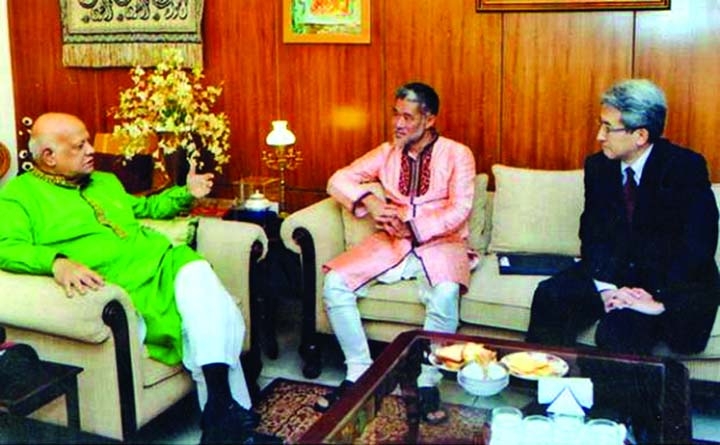
bdnews24.com :
China is climbing up the priority list in the Awami League’s foreign relations scheme, leaving Western countries and Bangladesh’s traditional ‘development partners’ trailing.
The ruling party is laying a greater emphasis on Bangladesh’s relations with China because of “strategic reasons”, Finance Minister Abul Maal Abdul Muhith has said.
He said China’s global economic influence had made them interested in bolstering ties.
“China is growing fast. They have huge savings. They have investments in many big countries, even in the US. One cannot think of the global economy without China,” he told journalists on Thursday.
The comment came at a time when it was widely believed that the ruling Awami League was focusing more on regional ties than distant Western relations. China was looking forward to an economic corridor through the Bangladesh-China-India-Myanmar (BCIM) regional grouping.
It is also a major contender for the Sonadia deep-sea port, a priority project of the new government.
After the much-debated elections in Jan 5, India and China, the two regional powers, unhesitatingly backed the government when the US openly called for a fresh election “as soon as possible”. The Finance Minister met the outgoing Japan International Cooperation Agency (JICA) Chief Representative Takao Toda at his official residence.
Japan is the largest development partner of Bangladesh.
The minister said China was also becoming an ‘influential’ development partner like Japan.
For instance, he said China would finance a rail bridge over the river Jamuna. He said Bangladesh had long-standing ‘friendly’ relations with China. In the 1990s, six bridges had been built with Chinese help as was the Bangabandhu International Conference Centre in Dhaka.
“We are prioritising considering its global economic influence. It’s a strategic reason,” he said.
JICA’s Toda would leave Dhaka on Friday. Mikio Hataeda has already replaced him. Toda said JICA would continue to be Bangladesh’s partner.
He said as a development partner Japan wanted to be by the side of the Bangladeshi people. Toda evaded a straight answer when asked whether JICA would renew its role in the much-talked-about Padma bridge project.
“I’ll come to Bangladesh once the bridge is built. I’ll drive car on the bridge,” he said, smiling.

